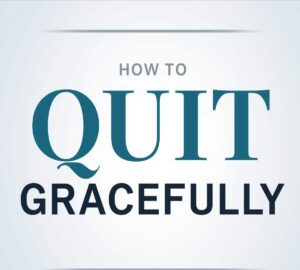Have you ever stared at your computer screen, your inbox overflowing, your to-do list never-ending, and thought, Is this really it? Maybe you’ve fantasised about stepping off the treadmill: taking a breath, recharging, or pursuing something different altogether. You’re not alone. More and more professionals today are hitting pause on their careers, either for a few months or several years. Yet, despite the growing popularity of career breaks, they remain a loaded topic. They are discussed in hushed tones in the workplace. They don’t fail to raise eyebrows during interviews.
There is an underlying question everyone who has ever thought of a career break asks: Will I ever be able to get back in?
In reality, career breaks can feel like a gamble, but they can also be the most transformative, intentional, and growth-filled periods of your life. The key lies in understanding what a career break really is, how to navigate it, and most importantly, how to own it when you’re ready to step back in.
Let’s explore everything you need to know about career breaks without sugarcoating the challenges. We’ll unpack what a career break is, how long is too long, the difference between a break and a sabbatical, and how to explain that gap (without underselling yourself). We’ll also tackle tricky questions like whether you can earn money during a career break, whether career breaks are more acceptable for women than men, and how to bridge the gap when you’re ready to re-enter the workforce.
Here goes …
What Is a Career Break?
A career break is exactly what it sounds like, a deliberate pause in your professional journey. It’s when you step away from the routine of work, not because you’re between jobs, but because you choose to take a step back. Think of it as a reset button, a chance to re-evaluate, re-energise, and reimagine where you want your career and life to go. A career break is a deliberate pause in your professional life.
Unlike unemployment or job loss, a career break is not about losing your place in the workforce; it’s about choosing to step back, whether for personal growth, family needs, or the simple yet profound desire to rediscover what truly matters to you. It is an intentional decision to hit pause, reassess your direction, and perhaps even explore a version of yourself that you rarely get to meet when you’re buried in deadlines, meetings, and KPIs.
People take career breaks for all sorts of reasons, each one as valid and unique as the person making the choice. Here are some of the most common motivations behind stepping away from work:
- Caring for young children or ageing parents: Life doesn’t stop at a busy office. Many professionals, especially women, step back to care for family, whether it’s raising a child, supporting an elderly parent, or helping a loved one through illness. It’s an act of love, often demanding and rarely acknowledged as the full-time role it is.
- Pursuing further studies or certifications: A career break can be the perfect time to level up your skills or pivot into a new field entirely. Whether it’s enrolling in a master’s program, taking online courses, or earning certifications, this time off can supercharge your long-term career trajectory.
- Exploring entrepreneurship or freelancing: Sometimes a career break is a chance to scratch that entrepreneurial itch: launching a side hustle, testing a business idea, or dipping your toes into the world of freelancing. It’s a way to explore new income streams and passions on your own terms.
- Volunteering, travelling, or taking a sabbatical to explore personal passions: Some people use a career break to give back: volunteering in their communities, teaching abroad, or contributing to causes close to their hearts. Others take the opportunity to see the world, gaining fresh perspectives and stories that shape their worldview. And for some, it’s about creative exploration: writing a book, painting, learning a new language, or diving into a passion project they never had time for.
- Recovering from burnout or a health issue: Burnout is real. Sometimes, a career break isn’t about chasing something new but about healing from what’s been draining you. It’s a chance to step back from the grind, reclaim your mental and physical health, and rebuild your energy before diving back in.
Yet despite the variety of reasons, career breaks are often viewed as “gaps” in a resume. Blank spaces that raise eyebrows and questions in interviews. But here’s the thing: a career break is so much more than a gap. It’s a season of reflection, a time to reset, and an opportunity to gain experiences and skills that aren’t always available inside an office.
Think about it: Where else do you learn empathy like you do while caring for a loved one full-time? Where do you build adaptability and resilience like you do when travelling solo across countries or navigating the ups and downs of starting a business?
A career break can teach you things no job description ever will. It’s not just a pause in your career, it’s a chapter of growth, a bold choice to live life on your own terms, and a reminder that your career is just one part of your story, not the whole book.

Career Break/Sabbatical: What’s the Difference?
While the terms are often used interchangeably, there are important differences between a career break and a sabbatical.
A career break is typically self-initiated. You leave your job voluntarily, and there’s no formal agreement with your employer about returning. It’s open-ended, and while you may hope to re-enter the workforce later, it’s not guaranteed.
A sabbatical, on the other hand, is usually an employer-approved, structured break. It’s often granted after several years of service (common in academia, research, and some progressive organisations). A sabbatical often has a formal policy: you take time off, paid or unpaid, with the understanding that you’ll return to your role afterwards.
- Career Break: Your decision, no job guarantee, often longer and less structured.
- Sabbatical: Employer-supported, structured, and with a return path.
Both serve as intentional pauses, but they carry different implications when it comes to job security and benefits.
How Long Is Too Long of a Career Gap?
The million-dollar question. How long is too long for a career break? If you’re contemplating a pause or already deep into one, this thought has likely kept you up at night. It’s the question that circles in your head, pops up in conversations, and lurks behind every job application: Have I been away too long?
The honest answer? It depends. There’s no universal cutoff, no one-size-fits-all timeline. What matters more than the length is what you do during the break and how you frame it when you return.
While there’s no fixed rule, the length of your career gap is often viewed through the lens of the industry you’re in:
- In fast-moving sectors like technology, finance, or law, things evolve rapidly. New tools emerge, market dynamics shift, and staying current is part of the job. In these fields, a break longer than 12 to 18 months might raise questions: Are your skills still sharp? Are you up to speed with the latest trends? It’s not impossible to return, but you’ll likely need a clear story about how you stayed connected, either through courses, freelance projects, or volunteer work.
- On the other hand, in fields like academia, non-profits, education, or the creative arts, longer breaks, sometimes even several years, can be more accepted and even respected. Many professionals in these areas take time off to conduct research, write a book, volunteer, or care for family. The pace is different, and so is the culture: life experience often enriches your perspective and is seen as valuable, not as a liability.
- In caregiving, in heavy professions like nursing, social work, or therapy, career breaks for family responsibilities may even add to your professional empathy. You’ve been in the trenches, after all. You’ve lived the realities that many of your clients face. That personal depth can’t be taught in a classroom or through certifications.
The key takeaway here is intentionality trumps duration. It’s not the length of the break that matters most. It’s what you do with it and how you frame it when you’re ready to return. If your break has a clear purpose, such as learning, caregiving, or personal development, you can make a compelling case for it, even after several years.
Think about it: two people might both take a two-year career break. One might feel stuck, overwhelmed, and disconnected from their field, while the other might use that time to upskill, volunteer, freelance, or simply grow as a person. Who do you think has a stronger narrative when it’s time to job hunt again?
If you’re looking for a number, here’s a rough guide:
- Less than 1 year: Often seen as a short-term pause, whether it’s for travel, personal matters, or a quick reset. Most employers won’t blink at this.
- 1–2 years: The “grey zone” You’ll need a clear story and a proactive approach to explain how you stayed connected or grew during this time.
- 3+ years: Yes, it’s longer but it’s not insurmountable. You’ll need a strong narrative, perhaps some upskilling, and a strategic re-entry plan (more on that later). But don’t let the number alone stop you.
How Do You Explain a Career Break on Your CV?
Here’s the part that trips many people up: how do you talk about a career break without sounding like you were just… sitting on the couch?
The answer lies in owning your narrative.
When explaining a career break either in an interview, on your CV, or in a cover letter, focus on three things:
- Why you took the break
- What you did during the break
- How it made you a stronger professional
Your CV is a snapshot of your professional journey, and a career break is part of that story so don’t leave it out. Here’s how to approach it:
- Add a “Career Break” entry under your Experience section, just like any other role.
- Be specific: list the dates, a brief reason (family caregiving, travel, personal project, etc.), and most importantly, the skills or activities you engaged in. This approach shows intentionality and prevents any ambiguity that might raise red flags for recruiters.
The Bias Still Exists
Let’s be honest: bias around career gaps still exists, especially in certain industries or in companies with more rigid cultures. Some hiring managers will still question long breaks, and some automated systems (hello, ATS!) might flag gaps as a concern. It’s frustrating, and it’s unfair.
But here’s the good news: the conversation is shifting (slowly)
More companies are recognizing that life happens, and that great talent can come from people who’ve taken time away. Initiatives like returnship programs are growing, offering structured paths back into the workforce after a break. And as more professionals especially women, own their career break stories, the stigma is slowly eroding.
Are Career Breaks More Favourable to Women Than Men?
Let’s address the elephant in the room because it’s a conversation we need to have. Career breaks are often viewed as a “women’s issue”. Why? Because for decades, societal norms have placed the burden of caregiving squarely on women’s shoulders, therefore, women are far more likely to take career breaks for family-related reasons than men.
This reality has shaped the way career breaks are perceived: when a woman steps away, it’s often expected but when a man does the same, it’s sometimes seen as unusual, even risky. And this gendered lens has real consequences.
Women who take career breaks frequently face biases in hiring and promotion. They’re often judged as “less committed” or “less ambitious” compared to their male peers who stayed in the workforce. Some employers even subconsciously may question a woman’s ability to “handle” a demanding role after taking time off, especially if the break was related to caregiving.
This perception is slowly but surely shifting.
More men are stepping up as caregivers, taking paternity leave, pausing their careers to care for family members, or even choosing to take a sabbatical to recharge and explore personal growth. The idea that caregiving is solely a woman’s responsibility is starting to crumble, though we’re not quite there yet.
Still, let’s not sugarcoat it:
- Career breaks are still more socially accepted for women than for men.
- But this acceptance often comes with a hidden cost, reinforcing outdated gender stereotypes about women being the “default caregivers” and men being the “primary breadwinners.”
- Women, as a result, often find themselves stuck in a double bind: expected to take breaks, yet penalized for it when they try to return.
However, this perception is slowly shifting but the playing field isn’t perfectly even yet. More men are taking paternity leave, opting for sabbaticals, or pausing to care for family. Yet, the reality remains: career breaks are still more socially accepted for women, but they can also reinforce gendered assumptions about professional commitment.
This is why normalizing career breaks for everyone, regardless of gender is so important.
Research shows that women face greater challenges in returning to the workforce after a career break compared to men. Factors like gender bias, assumptions about caregiving roles, and a lack of returnship programs tailored for women all play a part.
That said, the tide is turning. Companies are recognizing the value of diversity and the wealth of skills that career returners bring. Initiatives like returnship programs, flexible work arrangements, and inclusive hiring practices are making it easier for both men and women to re-enter the workforce.
Ultimately, the person most likely to be employed after a career break is the one who proactively builds skills, networks, and confidently owns their story regardless of gender.
Can You Earn Money During a Career Break?
Absolutely, and many people do. A career break doesn’t have to mean zero income. In fact, using the time to build alternative streams of income can enhance your skills and confidence.
Here are some ways people earn during a career break:
- Freelancing (writing, design, consulting, programming)
- Teaching or tutoring online
- Starting a side hustle (crafts, online courses, digital products)
- Remote project work or part-time gigs
- Investments (real estate, stocks, etc.)
- Passive income streams like blogging, YouTube, or podcasting
Earning during a break not only helps financially, but it also signals to future employers that you stayed engaged, proactive, and growth-oriented.
Should Career Breaks Be Normalized?
Absolutely. Career breaks should be seen as a natural part of a professional’s journey, not a stain on a resume. Life is not linear, and neither is a career. Taking time out to care for family, to grow personally, to travel, or to simply rest and reset should be celebrated, not penalized.
Normalizing career breaks for everyone regardless of gender is essential. When we view career breaks as a normal, healthy part of a lifelong career, we break down harmful stereotypes and create a more equitable workplace for all.
Normalising career breaks means:
- Encouraging open conversations in workplaces
- Creating structured re-entry programs
- Valuing life experience alongside professional experience
- Supporting both men and women in taking breaks without fear of being sidelined
It’s time to see career breaks for what they really are: a valid, often necessary, and potentially transformative part of a healthy career path.
In conclusion, a career is not just about climbing the ladder, it’s about creating a life that’s meaningful, balanced, and uniquely yours. So if you’re contemplating a career break, or you’ve taken one already, know this: you’re not falling behind. You’re evolving, learning, and reshaping your definition of success and that’s something to be proud of.
Remember, returning to work isn’t just about finding any job; it’s about finding the right fit for where you are now. Also, at the end of the day, it’s not about the length of the break, it’s about the value of the journey and how you bring it forward into your next chapter.
If you’ve ever taken a career break or you’re thinking about one, I’d love to hear from you. What led you to step away? What did you learn during your time off? How did it shape your career, your mindset, and your life?
Stay frosty!




